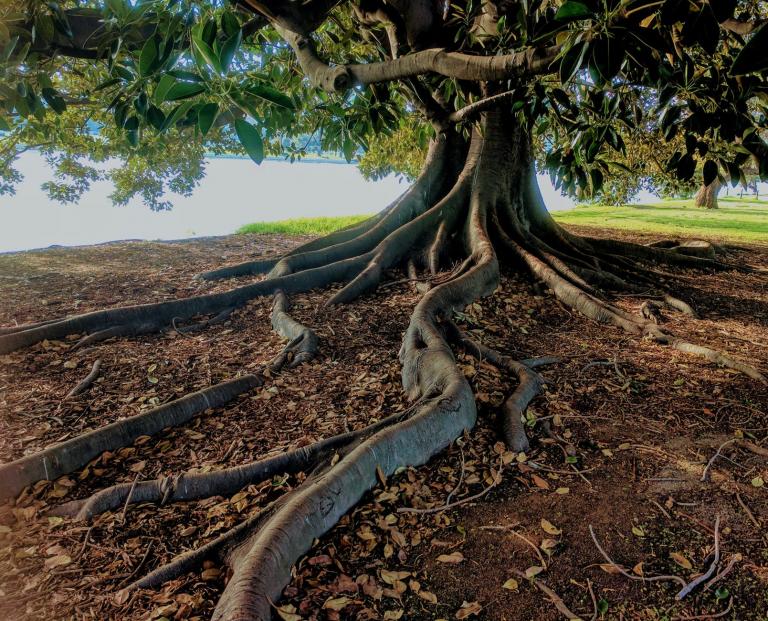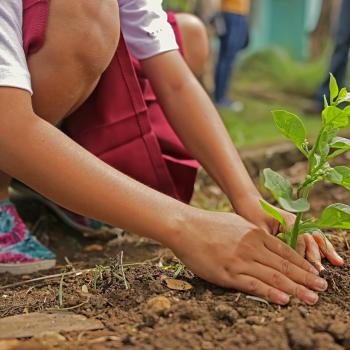
For awhile now I have tried to employ the practice of preparing for the Sunday liturgy by reading, studying and reflecting on the upcoming Sunday gospel reading to help me to fully understand and meditate on the reading and to more completely live out the particular liturgical season or feast we are celebrating. This coming Sunday, the Third Sunday in Lent, we encounter what I find to be a challenging and serious lesson that Jesus teaches us.
This gospel is all about repentance and taking seriously the brevity of this life on earth and the permanence of eternal life. The lesson that Jesus is trying to teach us is to keep our death always before our eyes and to not waste the gifts he has given us. In Luke 13:1-9, the people are perplexed about the death of some Galileans. Jesus assures them that the Galileans were no greater sinners than the rest of them, and issues a stern warning to the crowd to repent and reform their lives. He follows this admonition with the parable of the cursed fig tree:
A man has a fig tree which is barren and intends to cut it down, stating,
‘For three years now I have come in search of fruit on this fig tree but have found none. [So] cut it down. Why should it exhaust the soil?’ He said to him in reply, ‘Sir, leave it for this year also, and I shall cultivate the ground around it and fertilize it -Lk 13:7-8
The first thing I thought of when reflecting on this passage was the fact that our family situation was upended and drastically changed almost exactly three years ago when my husband took a new job, we moved to another city, and began basically a brand new life. Like the fig tree in the gospel reading, I have been given this time not for myself, but to be Christ to others. I began to question whether I am producing adequate fruit with the new beginning that God has given me, or, like the cursed fig tree, do I squander God’s graces and gifts that he has so generously entrusted me with? With the parable of the cursed fig tree, I was reminded that Jesus comes in search of fruit in our lives, and that with blessings and gifts comes responsibility and an obligation to use them productively to spread the gospel and to help others.
If I am honest, I know that I could be more loving, more kind, and more forgiving. I can definitely pray to develop more patience with my family and others around me. And there are gifts and talents that God has given me, and each one of us, that lie dormant, unused. God has entrusted us with many blessings and gifts so that we can nurture and develop them to be used to build up his Kingdom. What are some of these blessings and gifts?
Faith. Our faith is a gift, therefore we should never take it for granted. If we are blessed to know Christ and his Church, we should never believe that it is because of our actions, but because of the generous gift of God, who grants us that faith. God expects us to nurture this gift through prayer, the sacraments, and through good works. Am I taking enough time for the Lord, and am I helping my spouse get to heaven and imparting the gift of faith to my children? Have I honestly discerned whether God is calling me to participate in a form of Church ministry in order to help others to receive the knowledge and grace that faith affords us?
Family. As a wife and mother, my vocation is to be a helpmate to my husband and to care for and instruct my children. Am I doing the best I can to fulfill this vocation faithfully and lovingly, or do I perform my duties and obligations grudgingly and complain about difficulties? Do I escape too often from what I should be doing to engage in an excess of social media, television, or other entertainment when I should be spending time with my children?
Material possessions. Do we share our material blessings with the less fortunate? Lent is an ideal time to evaluate whether we are giving enough to others. I can also examine whether I am being wasteful or indulgent with money, food, clothing, or other possessions.
Gifts and talents. Am I using the abilities that God has given me to serve others and spread the gospel? Whether we are extroverted or introverted, athletic or studious, serious or comical, God can use our natural personalities, abilities, and talents to reach out to others and share his love. Whatever vocation I have been called to, I can serve God within its responsibilities and duties, and I can touch the lives of the people around me if I am willing to be used as God’s instrument.
The good news is that in the parable when the owner ordered the gardener to cut the fig tree down, the gardener promised to cultivate and fertilize the ground around it and convinced the owner to leave it another year. The gardener can represent Jesus, who, in his mercy and generosity gives us a second chance to convert and begin again to produce fruit. We can be assured also that, if we pray and ask his Mother Mary to intercede for us, she will convince her Son to relent and be merciful to us in our weakness.
Although this gospel is challenging, I am thankful to be able to think about the lessons it presents, and hopefully it will inspire me to become more productive in the Lord’s vineyard and more pleasing to him in every way.











